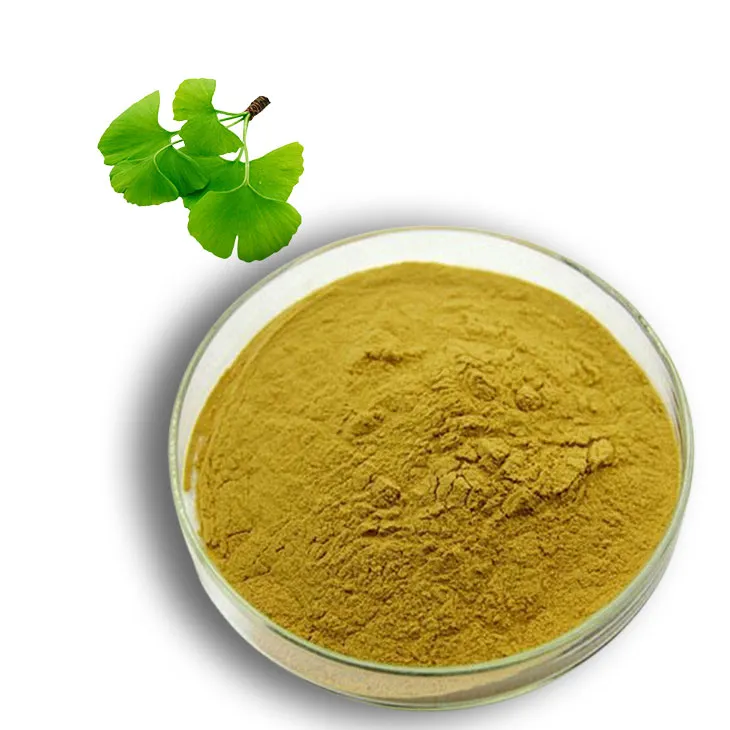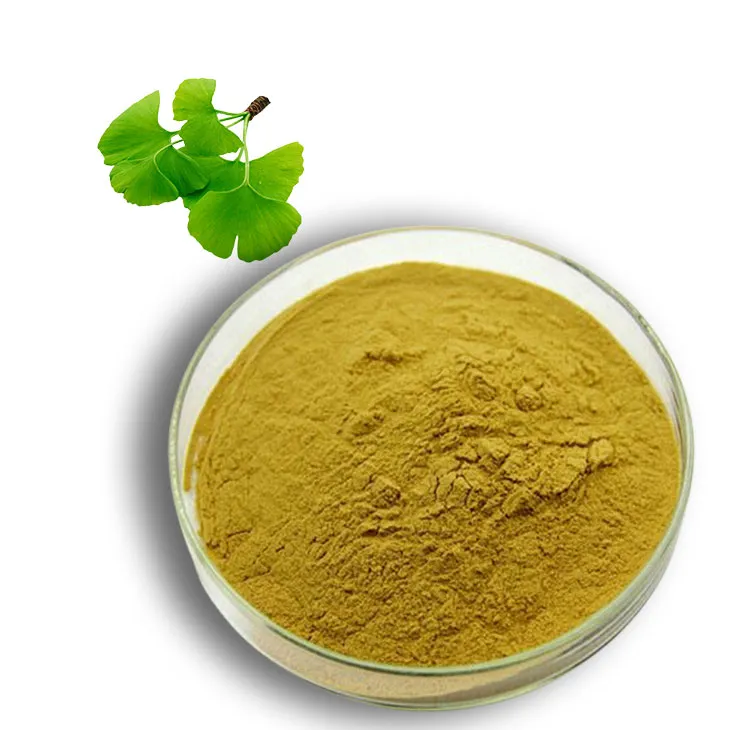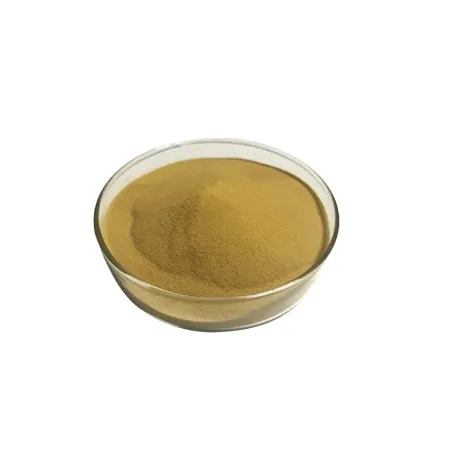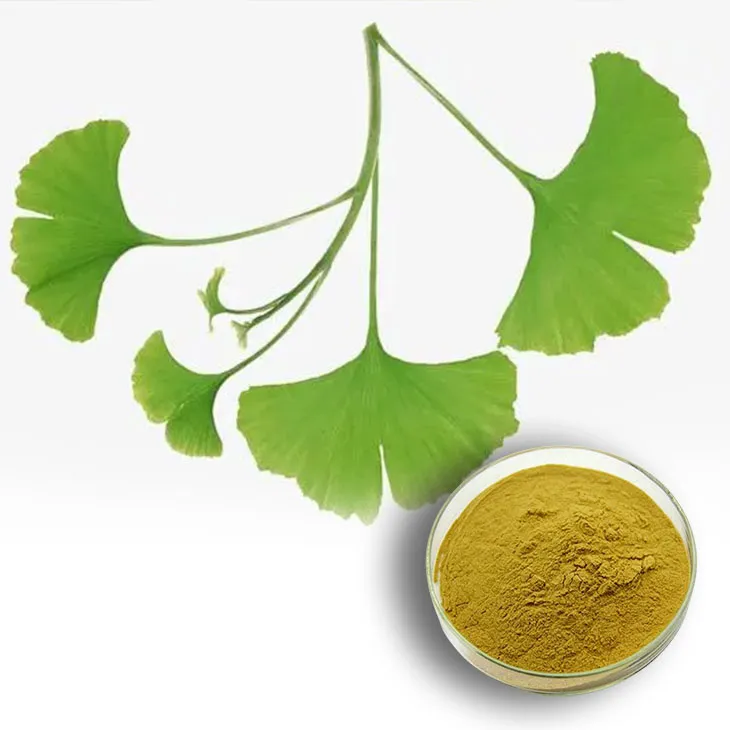- 0086-571-85302990
- sales@greenskybio.com
Adopt an economical and efficient way to purchase Ginkgo biloba extract in bulk.
2024-12-10

1. Introduction
Ginkgo biloba extract has been widely recognized for its potential health benefits, which has led to an increasing demand in various industries such as the pharmaceutical, dietary supplement, and cosmetic sectors. For businesses or large - scale consumers, purchasing Ginkgo biloba extract in bulk can be a cost - effective solution. However, this process requires careful consideration of several factors, including sourcing reliable suppliers, quality assessment, and price negotiation. This article aims to explore strategies for economically and efficiently buying Ginkgo biloba extract in large quantities.

2. Sourcing Reliable Suppliers
2.1 Research and Reputation
Research is the first step in finding reliable suppliers. Start by searching for suppliers online, in industry directories, or through trade shows. Look for companies with a long - standing reputation in the market. Check customer reviews and testimonials to gauge their reliability. A supplier with a good reputation is more likely to provide high - quality Ginkgo biloba extract. For example, some well - known suppliers may have been in the business for decades and have a track record of consistent product quality and on - time delivery.
2.2 Certifications and Compliance
Ensure that the supplier has the necessary certifications. In the case of Ginkgo biloba extract, relevant certifications may include Good Manufacturing Practice (GMP) certification. This certification indicates that the supplier follows strict manufacturing processes and quality control standards. Additionally, check for compliance with international and local regulations regarding the production and sale of herbal extracts. For instance, in the European Union, suppliers must comply with the regulations set by the European Medicines Agency (EMA) for herbal products.
2.3 Supply Capacity and Stability
When considering a supplier, evaluate their supply capacity and stability. A supplier should be able to meet your bulk requirements consistently. Inquire about their production capabilities, such as the size of their manufacturing facilities and the quantity of Ginkgo biloba extract they can produce per month or year. Also, consider their supply chain stability. A stable supply chain ensures that there are no unexpected disruptions in the delivery of the product. For example, a supplier with multiple sources of raw materials is less likely to face shortages due to crop failures or other unforeseen events.

3. Quality Assessment
3.1 Active Ingredient Content
The active ingredient content is a crucial factor in assessing the quality of Ginkgo biloba extract. The two main active compounds in Ginkgo biloba are flavonoids and terpenoids. The concentration of these compounds can vary depending on the extraction method and the quality of the raw materials. When purchasing in bulk, request detailed information about the active ingredient content from the supplier. For example, high - quality Ginkgo biloba extract may have a specific ratio of flavonoids to terpenoids, such as 24:6 for a standardized extract.
3.2 Purity and Contaminants
Check for the purity of the Ginkgo biloba extract and the presence of contaminants. Purity can be affected by factors such as the extraction process and the handling of the product. Contaminants may include heavy metals, pesticides, and microbial contaminants. Suppliers should be able to provide test reports demonstrating the absence or low levels of these contaminants. For example, the extract should have a very low level of lead, mercury, and other heavy metals, which are harmful to human health if present in high amounts.
3.3 Product Consistency
Product consistency is important, especially for businesses that require a uniform product for their manufacturing processes or formulations. Ensure that the supplier can provide Ginkgo biloba extract with consistent quality from batch to batch. This can be achieved through strict quality control measures at the supplier's end. For example, a reliable supplier may use advanced analytical techniques to monitor and control the quality of each batch of extract.

4. Price Negotiation
4.1 Market Research
Before entering into price negotiations, conduct market research to understand the current price range of Ginkgo biloba extract. Look at different suppliers' price lists, industry reports, and market trends. This knowledge will give you an edge during negotiations. For example, if you know that the average market price for a certain grade of Ginkgo biloba extract is $X per kilogram, and a supplier is quoting a much higher price, you can use this information to negotiate a more reasonable price.
4.2 Quantity - based Discounts
When purchasing in bulk, you are likely to be eligible for quantity - based discounts. Inquire about the supplier's discount policy based on the quantity of purchase. For example, a supplier may offer a 5% discount for purchases of 100 kilograms or more, and a 10% discount for purchases of 500 kilograms or more. Try to negotiate for even better quantity - based discounts based on your projected purchase volume.
4.3 Long - term Contracts
Consider entering into a long - term contract with the supplier. A long - term contract can provide stability for both parties. For the supplier, it guarantees a certain level of business volume, and for you, it may result in more favorable pricing terms. For example, a three - year long - term contract may come with a fixed price or a price adjustment mechanism based on market conditions, which can protect you from sudden price hikes.

5. Logistics and Shipping
5.1 Shipping Costs
When purchasing Ginkgo biloba extract in bulk, shipping costs can be a significant factor in the overall cost. Compare shipping quotes from different carriers and modes of transportation. For example, air freight is usually faster but more expensive, while sea freight is slower but more cost - effective for large volumes. Consider the urgency of your need for the product and choose the shipping option that balances cost and time.
5.2 Packaging and Storage
Proper packaging and storage are essential to maintain the quality of Ginkgo biloba extract during transportation and storage. Ensure that the supplier uses appropriate packaging materials that can protect the extract from moisture, light, and other environmental factors. Also, discuss the storage requirements with the supplier. For example, Ginkgo biloba extract should be stored in a cool, dry place away from direct sunlight.
5.3 Customs and Import Regulations
If you are importing Ginkgo biloba extract, be aware of the customs and import regulations of your country. Different countries may have different requirements regarding the import of herbal products. Some countries may require specific documentation, such as a phytosanitary certificate or a certificate of origin. Ensure that the supplier can provide all the necessary documents to avoid any delays or issues at customs.
6. Conclusion
Purchasing Ginkgo biloba extract in bulk can be an economical and efficient option, but it requires careful planning and consideration. By sourcing reliable suppliers, assessing quality, negotiating prices, and managing logistics, you can ensure a successful bulk purchase. These strategies will not only help you save costs but also ensure that you obtain high - quality Ginkgo biloba extract for your intended use.
FAQ:
Question 1: How can I find reliable suppliers for Ginkgo Biloba extract?
One way is to search for well - known and established manufacturers in the nutraceutical or herbal extract industry. Look for suppliers with a good reputation in terms of product quality and business ethics. You can also check industry directories, attend relevant trade shows, or ask for referrals from other businesses in the field. Additionally, online platforms with verified supplier reviews can be a useful resource.
Question 2: What are the key factors in quality assessment of Ginkgo Biloba extract?
The key factors include the concentration of active compounds such as flavonoids and terpenoids. Purity is also important, which means the absence of contaminants like heavy metals, pesticides, and other harmful substances. The extraction method used can affect quality, so look for suppliers that use proper extraction techniques. Additionally, check if the product meets relevant quality standards and certifications such as GMP (Good Manufacturing Practice).
Question 3: How can I negotiate a good price when buying Ginkgo Biloba extract in bulk?
Firstly, do your research on the market price range. Have a clear understanding of the quantity you need and be prepared to commit to a larger order if possible. Highlight your potential for long - term business with the supplier. Compare quotes from different suppliers and use this information as leverage in the negotiation. Also, be aware of any additional costs such as shipping and handling and negotiate these as well.
Question 4: Are there any specific regulations or certifications to look for when purchasing Ginkgo Biloba extract?
Yes, as mentioned before, GMP certification is important for ensuring good manufacturing practices. In some regions, there may be specific regulations regarding herbal supplements. For example, in the United States, the Dietary Supplement Health and Education Act (DSHEA) regulates dietary supplements including Ginkgo Biloba extract. Look for products that comply with relevant local and international regulations.
Question 5: What should I consider regarding the packaging of bulk Ginkgo Biloba extract?
The packaging should protect the extract from factors like light, moisture, and air, which can degrade its quality. It should be suitable for storage and transportation. For bulk purchases, packaging in sealed, air - tight containers is preferable. Consider whether the packaging is recyclable or environmentally friendly if that is a concern for your business. Also, check if the packaging is labeled clearly with all the necessary information such as product name, concentration, and batch number.
Related literature
- The Quality and Efficacy of Ginkgo Biloba Extract: A Review"
- "Sourcing and Procurement of Herbal Extracts: A Guide for Bulk Buyers"
- "Ginkgo Biloba Extract: Production, Quality Control and Market Trends"
- ▶ Hesperidin
- ▶ citrus bioflavonoids
- ▶ plant extract
- ▶ lycopene
- ▶ Diosmin
- ▶ Grape seed extract
- ▶ Sea buckthorn Juice Powder
- ▶ Beetroot powder
- ▶ Hops Extract
- ▶ Artichoke Extract
- ▶ Reishi mushroom extract
- ▶ Astaxanthin
- ▶ Green Tea Extract
- ▶ Curcumin Extract
- ▶ Horse Chestnut Extract
- ▶ Other Problems
- ▶ Boswellia Serrata Extract
- ▶ Resveratrol Extract
- ▶ Marigold Extract
- ▶ Grape Leaf Extract
- ▶ blog3
- ▶ blog4
- ▶ blog5
-
Pure 85% Tomentil Extract.
2024-12-10
-
Rosemary extract
2024-12-10
-
Hawthorn Extract
2024-12-10
-
Almond Extract Powder
2024-12-10
-
Jujube Extract
2024-12-10
-
Curcumin Extract
2024-12-10
-
Saffron Extract Powder
2024-12-10
-
Ivy Extract
2024-12-10
-
Dan Shen Root Extract/Salvia Root Extract
2024-12-10
-
Centella Asiatica Extract
2024-12-10
-
Licorice Root Extract Powder
2024-12-10





















